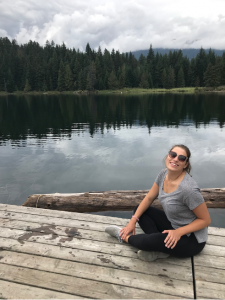 My name is Madeleine Deis and I am a 5th year sociology major with a Spanish minor here at UBC. I started off the semester not knowing anything about the art of translation, except of course, google translate (sorry Maria!). However, as the class progressed, I began to truly understand that there is an entire world associated with translation. It’s almost like a dance with the languages that you are working with; how each sentence and each word needs to move in order for the translation to make sense, for the tango to be seamless.
My name is Madeleine Deis and I am a 5th year sociology major with a Spanish minor here at UBC. I started off the semester not knowing anything about the art of translation, except of course, google translate (sorry Maria!). However, as the class progressed, I began to truly understand that there is an entire world associated with translation. It’s almost like a dance with the languages that you are working with; how each sentence and each word needs to move in order for the translation to make sense, for the tango to be seamless.
Translation has made me a stronger Spanish speaker, and even a stronger English speaker, as through the semester I have had to delicately balance my knowledge of both languages in order to create translations for two incredible community organizations: Mosqoy and Ratón de Biblioteca. Working with these groups has been an absolute pleasure, as my understanding has broadened about different organizations in varying parts of Latin America that do so much good for the members of their communities. It is a unique experience to be able to use translation skills in order to help these fantastic organizations with reaching more people within the communities that they are operating in, and being part of that is extremely heartwarming.
Although I still have a long way to go with refining my translation skills, I have appreciated this class immensely, and I look forward to different translation projects in the future!
 The community engagement component of this class was one of the reasons why I wanted to take this class. I’ve worked with communities in various countries in Latin America through my work prior to starting a PhD this year, and I hope to continue to do so throughout my PhD. However, in much of my work I needed to get by with my less than fluent Spanish in a work setting, and I’m sure there were many blunders made along the way that I’m not even aware of. This class was a really nice way to reflect on the context of each community and how communication should take this into consideration. I think that I’ve gained some tools to think through the necessary steps to take in situations where translation is needed and in communicating with communities in general. I think these will be really useful going forward in my research, and I’m really grateful for the experience. -Debbie Pierce
The community engagement component of this class was one of the reasons why I wanted to take this class. I’ve worked with communities in various countries in Latin America through my work prior to starting a PhD this year, and I hope to continue to do so throughout my PhD. However, in much of my work I needed to get by with my less than fluent Spanish in a work setting, and I’m sure there were many blunders made along the way that I’m not even aware of. This class was a really nice way to reflect on the context of each community and how communication should take this into consideration. I think that I’ve gained some tools to think through the necessary steps to take in situations where translation is needed and in communicating with communities in general. I think these will be really useful going forward in my research, and I’m really grateful for the experience. -Debbie Pierce
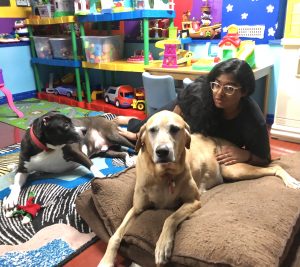 My name is Lorantiya Fernando-Geekiyanage and I am a recent graduate of UBC after majoring in psychology and minoring in Spanish. After translating leisurely at my local community centre and during my volunteer trip to Cusco, Peru I became fascinated with the world of Spanish to English translation and vice versa and then thought to myself “why don’t I take María’s class now since I have a little extra time on my hands.”
My name is Lorantiya Fernando-Geekiyanage and I am a recent graduate of UBC after majoring in psychology and minoring in Spanish. After translating leisurely at my local community centre and during my volunteer trip to Cusco, Peru I became fascinated with the world of Spanish to English translation and vice versa and then thought to myself “why don’t I take María’s class now since I have a little extra time on my hands.”
One aspect of this class I did not expect, was the community engagement component (which would bring me back to Cusco virtually), this has honestly been a thoroughly enjoyable experience. Translating for both Mosqoy and Ratón de Biblioteca presented me with unique challenges and learning opportunities. With these projects, I have realized the complexity of translating, which ultimately resulted in my Spanish bettering beyond just literacy and conversation. This is especially true when it comes to learning all that goes into a translation such as cultural and political context, the importance of gender, grammar and tone. Most of all, working on both texts has taught me how to think outside of the box, colouring in the lines is not always useful when it comes to translation.
Alone translation is a powerful entity, and having the power to be able to convey a message that was intended for one audience to a completely different one and that in itself is an incredible act that I am grateful to have been given the opportunity to take part in.
Initially, I reasoned that the process of translation was most ethically done in a vacuum: free of any emotions that would impose upon the translation an added tone or meaning. Yet, as I worked on the Community Engaged Project components, I could not help but feel at once inspired, engaged, and challenged by the assigned texts. All through Dra Maria’s delivery of SPAN 401, I appreciated engagement with the text as an integral factor of the foundation of a good translation. By meeting the founders of the collaborating organisations, working on the translations as a group, and discussing relevant theories and their applications in class, I saw that the value of a translation – that is, the physical product of experiences and interpretations – lies in the genuine acknowledgement and interaction with not only the text, but also its purpose. In effect, this course’s most rewarding aspect was that we worked towards a tangible cause, not a grade. -Eman Al-Sulaiti.

PS. Here’s a photo of Bamsı, who I think might secretly be an owl if his dedication to supporting me through my all-nighters this (online, long-distance-learning) term is anything to show for it.
I am glad I decided to take SPAN 401; this course was a great opportunity to learn about the theories of translation, the different processes and steps it takes to translate and how grammar plays a role in translating. Through in-class activities, homeworks, and projects, I was able to strengthen my understanding in the art that translation is. What I liked the most about this course was the Spanish for Community project we did for Mosqoy. Having the opportunity to translate for an organization with a great mission was an amazing and fulfilling experience. Through collaboration with my team and the professor, we translated over 3000 words from english to spanish. What I enjoyed the most was the dynamic with my team members, we helped each other and added suggestions to each other through Google Docs. Even though we never met in person, we were able to create a translation with a consistent tone and that flows well. I recommend this course to anyone interested in becoming a translator or who wants to understand the challenging processes that translation entails. -Andrea Atanacio

“Without translation, I would be limited to the borders of my own country. The translator is my most important ally. He introduces me to the world.”– Italo Calvino
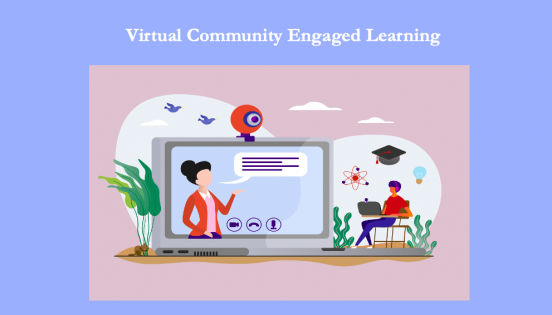

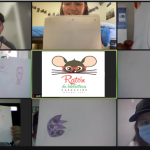
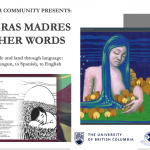
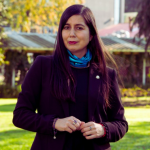
Comments by lorenia salgado-leos